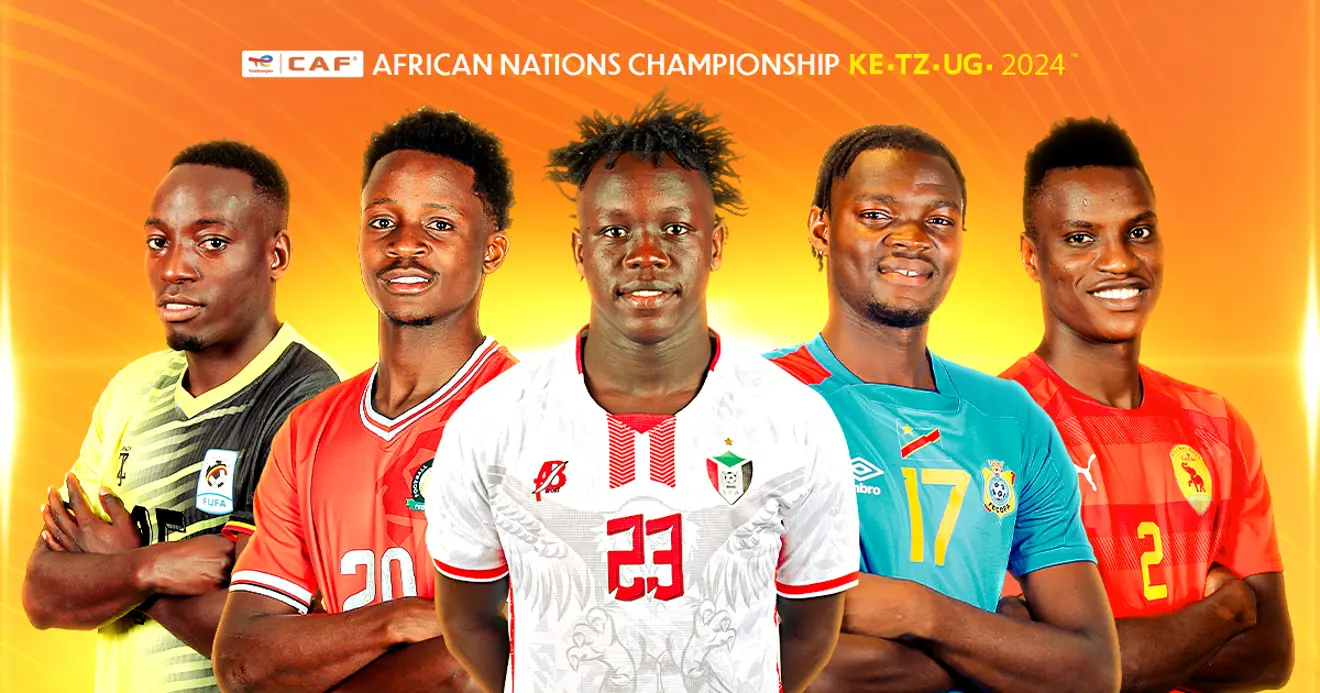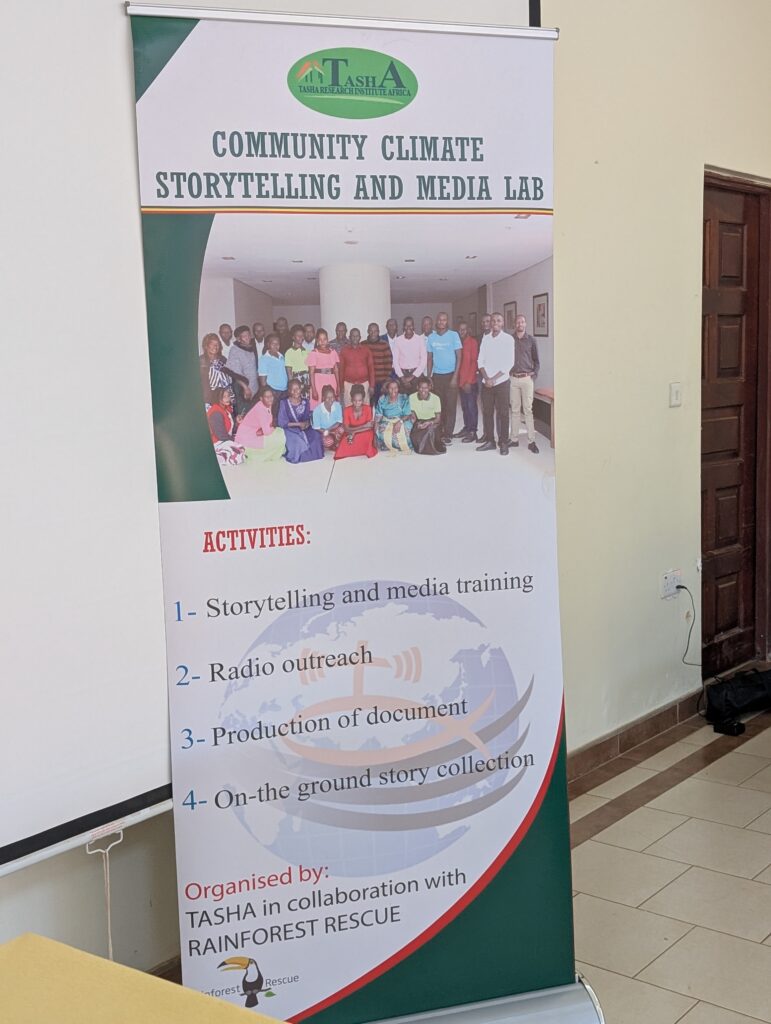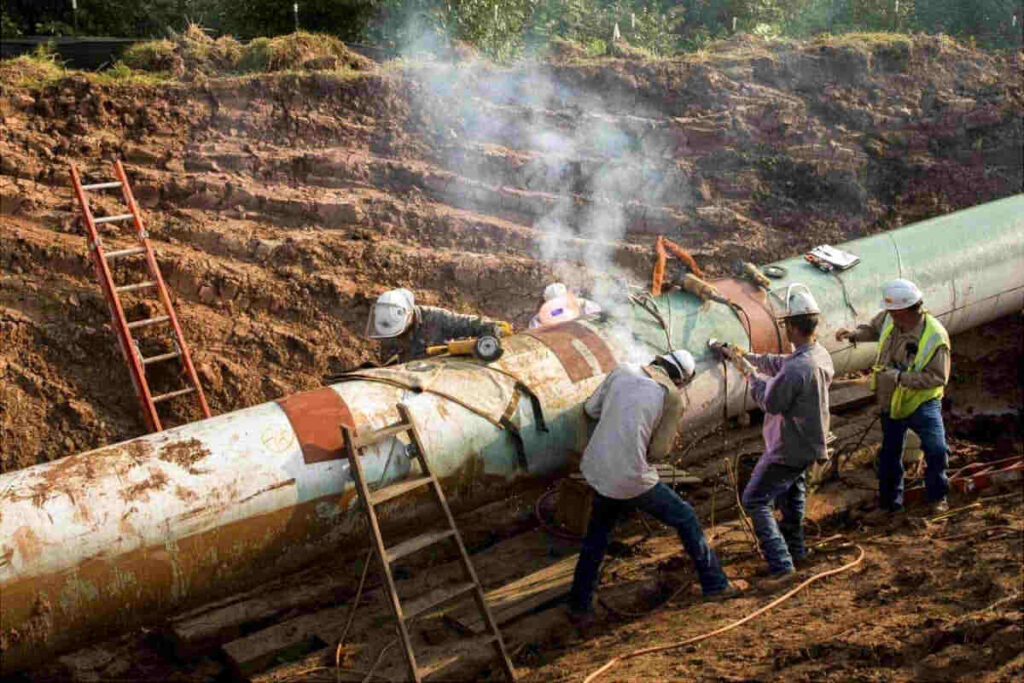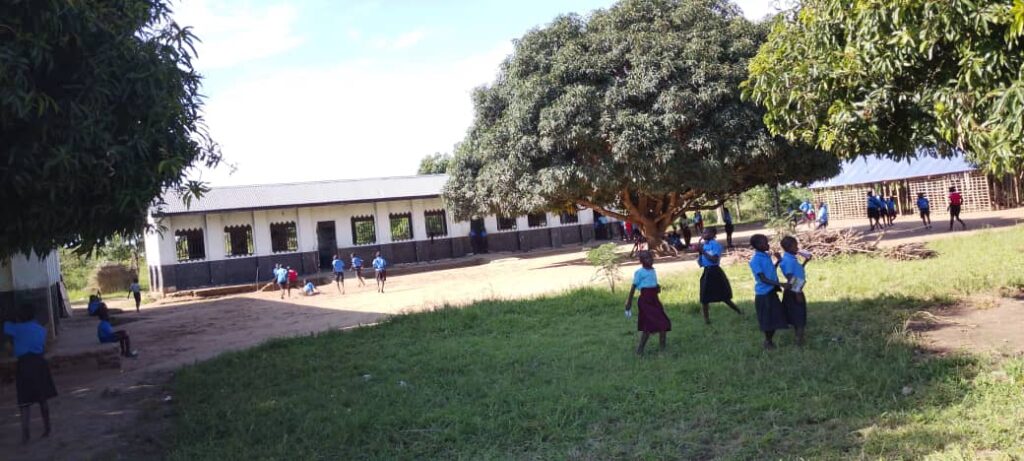When a fossil fuel giant covers stadiums in its logo and bankrolls beloved tournaments, we should ask what—exactly—it is buying. In Africa, TotalEnergies has spent the past decade saturating football with its brand, from the Africa Cup of Nations (AFCON) to the African Nations Championship (CHAN). In 2025 the company even deepened its deal with the Confederation of African Football (CAF), securing title sponsorships across 12 major competitions through 2028—including CHAN, which is currently being staged by Kenya, Tanzania, and Uganda and branded “TotalEnergies CHAN.”
This is textbook sportswashing: using the joy, unity, and mass reach of sport to launder a harmful reputation. And it is happening while the very same company is driving forward one of the continent’s most controversial fossil projects: the East African Crude Oil Pipeline (EACOP), a 1,443-km heated pipeline tied to the Tilenga and Kingfisher oil fields, cutting from Uganda to Tanzania’s coast.
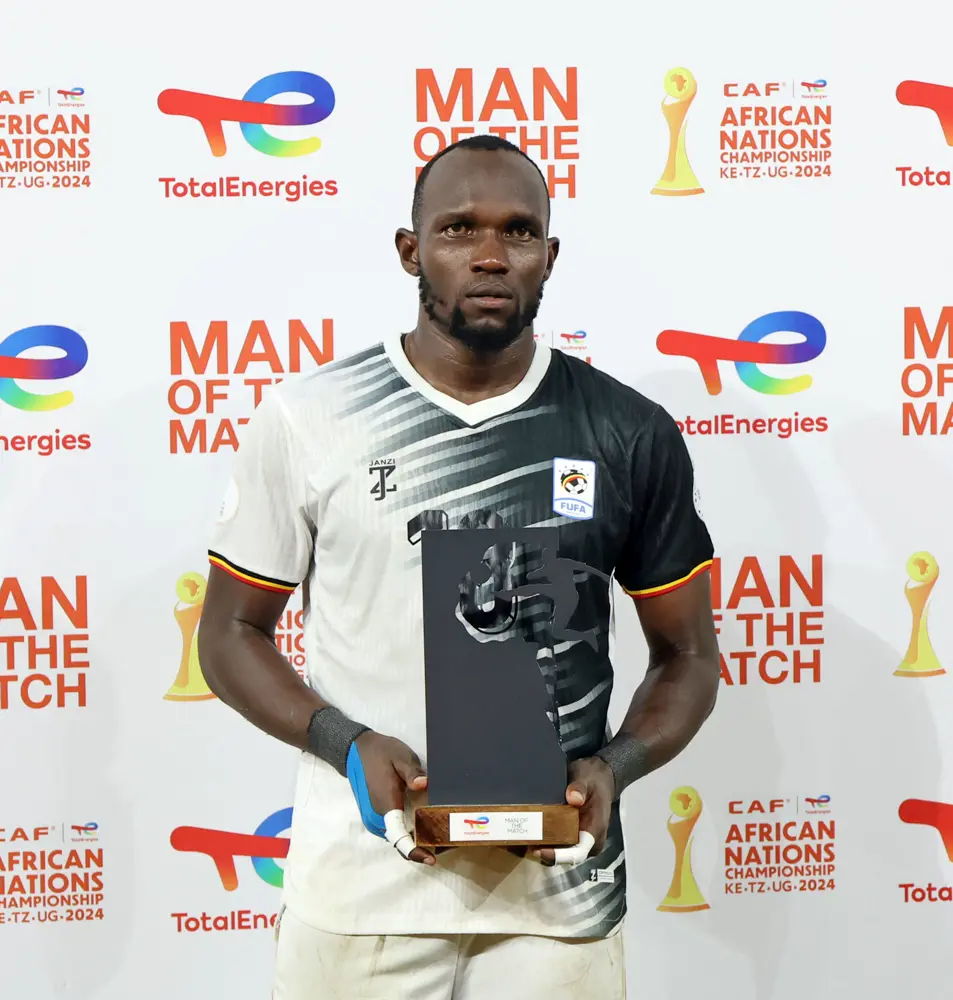
Celebrate on the Pitch, Cause Damage off It
Civil society groups across Africa have been sounding the alarm on this dissonance for years. Greenpeace Africa has described TotalEnergies’ football activism as a “clean game, dirty money” strategy—arguing that the company deliberately uses the passion of fans and players to distract from ongoing drilling, displacement, and pollution risks. That critique is especially sharp in 2025 as CHAN carries TotalEnergies’ name while EACOP advances.
The concerns are not speculative. Human Rights Watch has documented land acquisition failures, compensation delays, and intimidation linked to oil development in Uganda, including the early stages of EACOP. Another HRW report revealed the crackdowns on environmental defenders who dared to challenge the project. And in 2022, the European Parliament went as far as to condemn human rights violations tied directly to fossil investments in Uganda and Tanzania, explicitly naming EACOP. These are not just activist slogans; they are evidence-based accounts of harm.
Why EACOP Cannot Be Defended
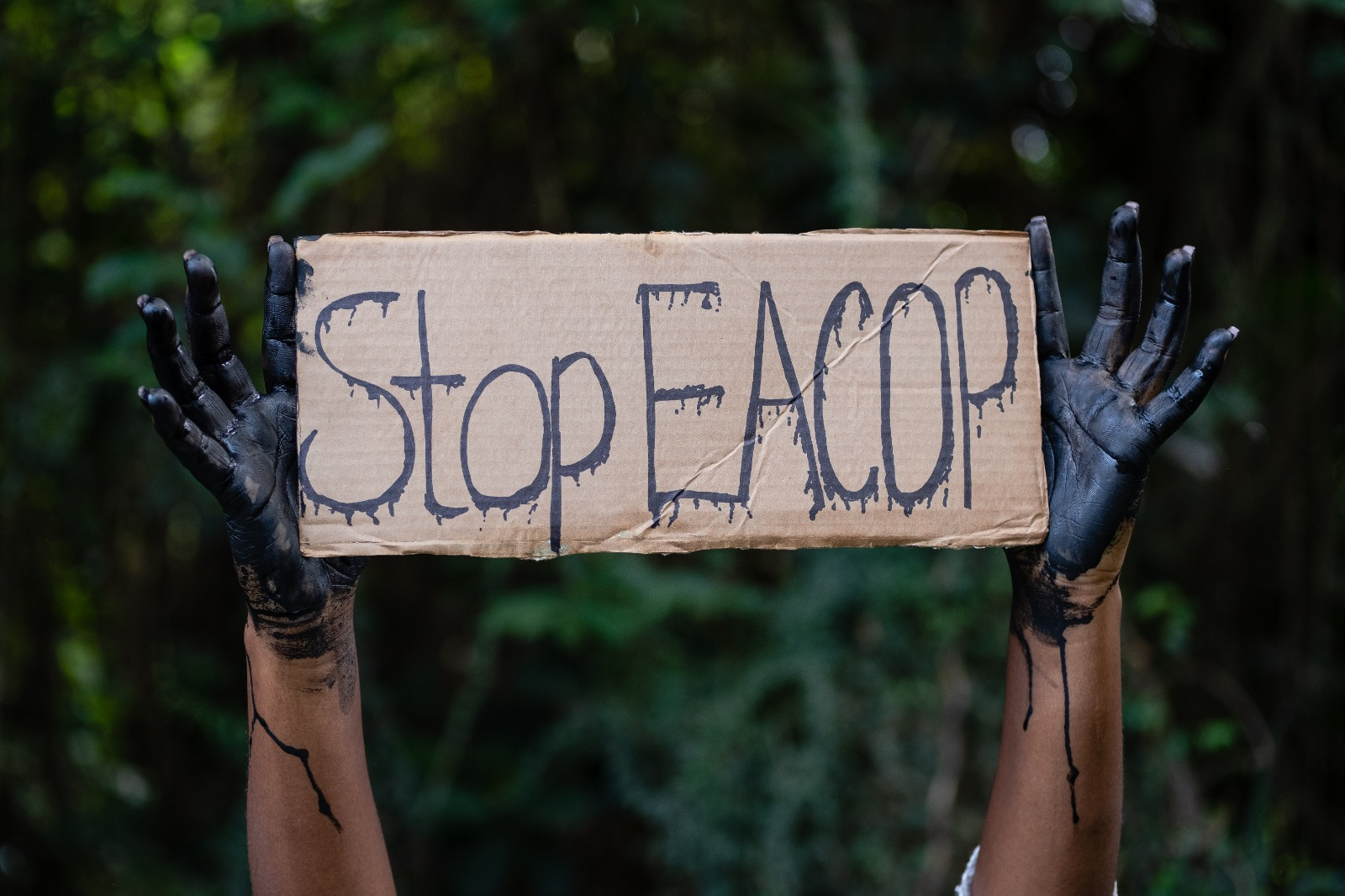
The human impact is already devastating. Thousands of people along the pipeline route have lost land, faced delayed or inadequate compensation, and seen their food security collapse. HRW’s field interviews are filled with testimonies of “loss of land and livelihoods.” Dissatisfaction with the compensation process is so widespread that even financiers highlight it as a risk in their reports.
The climate and ecological risks are equally grave. EACOP is designed to be the world’s longest heated crude pipeline, locking East Africa into decades of fossil dependency in direct contradiction to global climate goals. The route cuts through vital ecosystems between Lake Albert and the Indian Ocean, carrying waxy crude that requires constant heating at around 50°C to move. Even TotalEnergies admits the pipeline will be energy-intensive, with inherent spill and heating risks.
Financial institutions have already drawn the line. Dozens of global banks and insurers have ruled out financing EACOP, citing climate, human rights, and reputational costs. Standard Chartered, once seen as a potential backer, publicly stepped away in 2023. Since then, a cascade of banks and insurers—including Citi, JPMorgan Chase, Deutsche Bank, Wells Fargo, and Morgan Stanley—have distanced themselves. This isn’t just activist pressure; it’s the financial world recognizing a toxic investment.
The CHAN Distraction
Against this backdrop, TotalEnergies’ omnipresence in African football functions as a glossy cover. Its renewed CAF partnership ensures its name dominates the continent’s biggest tournaments, while CHAN—co-hosted in East Africa this August—is branded from top to bottom as “TotalEnergies CHAN.” The juxtaposition is jarring: as communities struggle for justice and defenders face repression, the company’s logo is celebrated on scoreboards and podiums in the very countries directly affected by its oil operations.
Sportswashing works only if we fail to connect these dots.
What Accountability Requires
True accountability begins with abandoning EACOP—permanently. No amount of PR can disguise the project’s social, ecological, and financial risks. TotalEnergies must commit to an orderly withdrawal, paired with honest disclosures about lessons learned. The ongoing failure to secure conventional financing despite years of lobbying is not just a hurdle—it is a warning.
But leaving is not enough. TotalEnergies must ensure that its exit from Uganda does not deepen the harm. That means creating a robust, independently verified remedy framework for affected people: back pay for delayed compensation, restitution for lost livelihoods, community-driven development funds, and long-term monitoring backed by secure financing. The evidence compiled by Human Rights Watch provides a strong foundation for calculating these remedies.
The company must also set up a regional just-transition fund to support climate adaptation, biodiversity restoration, and sustainable energy access in the Lake Albert and pipeline corridor regions. If it can afford to underwrite 12 CAF tournaments through 2028, it can afford to repair the damage caused by its fossil projects.
Finally, it is time to end fossil sponsorships in African sport altogether. As long as fossil fuel companies are allowed to buy goodwill through cultural institutions, communities will continue to pay the price. CAF, national federations, and governments should follow the growing global movement that calls for fossil-free sport.
A Better Future for Football and Communities
African football does not need fossil sponsors to thrive. It needs long-term, values-driven investment in youth academies, women’s football, community facilities, safe travel, and climate-resilient stadiums. East Africa does not need EACOP to prosper. It needs diversified, locally owned, and sustainable livelihoods, supported by real compensation and climate financing.
TotalEnergies can begin by doing what its branding campaigns try so hard to avoid: taking responsibility. Ending EACOP, exiting Uganda responsibly, and paying up for damages are the minimum steps. Anything less is just another halftime show, a performance designed to distract, not repair.

